Ever since we announced that we would be releasing the breeding varieties into the world, we’ve been overwhelmed with so many excited emails, messages, and questions. Below you’ll find answers to some of the most common ones.
If you have a question that is not answered here, be sure to leave it in the comments section below.
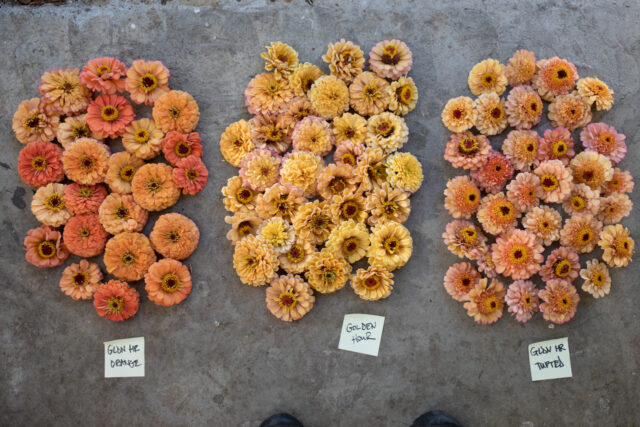 I’m confused. What exactly is a Floret Original? How are they different from the varieties you’ve carried in the past?
I’m confused. What exactly is a Floret Original? How are they different from the varieties you’ve carried in the past?
One thing I didn’t realize until we started making this big transition was how many people thought that every variety of flower seed that we’ve carried in our shop was bred here on the farm. While I love that you have that much faith in us, the vast majority of varieties we’ve offered through our shop were already in existence and collected from a network of specialty growers or were produced here in our fields. The difference with the Floret Original varieties is that they were either developed through many seasons of careful selection on the farm or were actually born here!
Over the last 7 years, we have been working on developing these new varieties to help give local growers an advantage in the marketplace and open up a whole new world of possibilities for the seasonal flower movement.
We’ve focused our efforts on flowers that are easy to grow, thrive in a wide range of climates (especially those that are hot or humid), and are both vigorous and healthy so that even beginning gardeners will have success with them. Potential candidates are measured against a set of strict criteria, including long stems for cutting, beautiful coloring, and a unique form that will lend itself to flower arranging.
To ensure that local growers have the advantage over imported blooms, we’ve been focusing on breeding flowers that don’t ship well (dahlias, celosia, and zinnias) so if floral designers or wholesale flower sellers want to get their hands on them, they will have to buy them locally or learn how to grow their own.
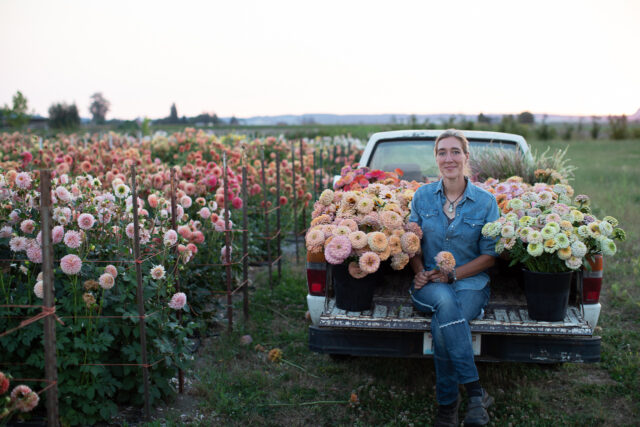 Are you going to offer any other seed besides the Floret Originals in the future? Where can I find cress or sweet peas? Help!
Are you going to offer any other seed besides the Floret Originals in the future? Where can I find cress or sweet peas? Help!
It has long been a dream of mine to have our little seed company transition to specializing in farm-bred varieties. After many years of diligent work, we have finally reached that point!
Moving forward we will only be offering Floret Original varieties or special flowers that need our help to be preserved. It is a bittersweet moment because I love all of the flowers that we’ve had the pleasure of sharing with you in the past, but in order to give the breeding varieties the time and attention they need, it’s important that we focus our efforts.
We have created a series of special resources to help you find new and wonderful sources for seed. I’m excited to introduce you to my very favorite companies (many of which are still family-owned) and help play matchmaker between you and them. Be sure to read Floret’s Favorite Specialty Seed Sources.
A huge thank you to everyone who has ordered seeds from us over the years. Your support has allowed our family farm to grow and thrive and I’m excited to share this next chapter with you.
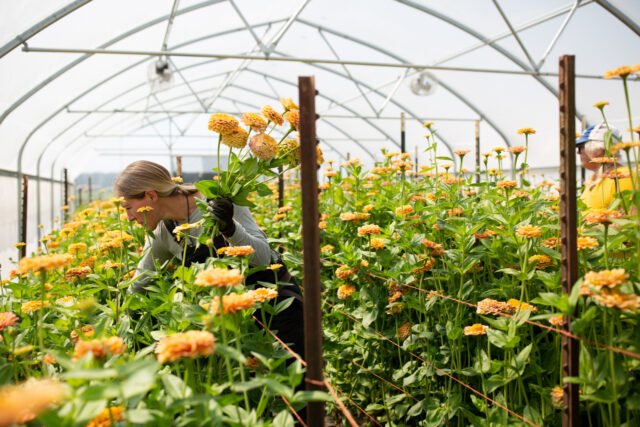 My farm is small and every square foot counts. What percentage of the plants will come back true to the photos on your site?
My farm is small and every square foot counts. What percentage of the plants will come back true to the photos on your site?
These special varieties have been grown in isolation, either through distance or inside of covered hoop houses, and refined through a process of roguing for the past 6 to 7 years.
We have grown out and trialed all of the seeds that we’re offering to ensure that each one is of the highest quality and what we’d consider a stable variety, meaning that at least 90% (or more) of the plants will produce flowers that are true to type.
Please note that there will be some slight variations of flower size, form, or color and you will occasionally find some off types (a few brightly colored flowers are the most common surprise) but for the most part, the vast majority of the plants that come from each packet of seed will resemble their photos and descriptions.
If you have become accustomed to growing hybrid flowers (like the Zowie or Uproar series zinnias, Pro Cut sunflowers, etc.) that are 100% uniform, you may be surprised or a little frustrated by the diversity found in our seeds. If you need every single plant to perform in an identical manner then these varieties are probably not for you.
Over time, these varieties will be refined even further as we work to select fuller flowers and a more uniform color presentation, but I am excited to have you try them in their current, not-quite-perfect state and see what you think.
If you are planning to save seed (for your own personal use) and discover an off type in the mix, be sure to remove (rogue) it out of the patch so that all of the flowers that you’re growing and saving are the ones you desire.
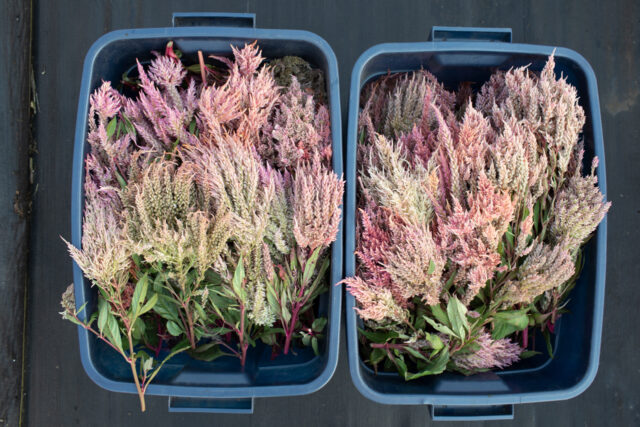 Can I grow out and resell the seed from Floret Originals or Dawn Creek seed varieties?
Can I grow out and resell the seed from Floret Originals or Dawn Creek seed varieties?
One question that we get very often is “Can I grow and sell the seed from your Floret Original varieties?” I’ve also seen a number of small farmers growing out the seed they purchased from Dawn Creek and offering it as their own without permission. I understand the excitement about these new beauties, and because the seed is limited, people see an opportunity for their businesses.
But we have poured a tremendous amount of time, effort, and resources into developing these varieties and ask that you do not reproduce their seed, for sale, without permission. With that said, I would love for you to grow and save seed from these varieties for your own personal use (including breeding work) and to share with your family and friends. You are more than welcome (and highly encouraged) to grow and sell the fresh flowers and potted plants from these magical varieties as well!
An important thing to note is that before we ever started growing out the Dawn Creek zinnia varieties for seed, we reached out to Kori, expressed our interest, and asked for permission. Once permission was granted, we came to an agreement on a royalty structure so that she would receive a percentage of sales from any variety that was derived from her original seed.
In order for independent plant breeding to become a more viable occupation, it is extremely important that plant breeders are both acknowledged for their incredible contributions and fairly compensated for their work.
To summarize, the unauthorized production of seeds with the intent to sell, renaming of varieties, or reselling of packets purchased from Floret without permission is prohibited.
At this time, we are the only source for these seeds, but if you are interested in potentially becoming a licensed seed grower in the future, please fill out this form.
Are the Floret Originals varieties available wholesale? I’d love to offer them in my catalog or shop!
Currently, we do not have enough seed to offer Floret Original varieties in volume to other seed companies or retailers. However, if you would like to join our waiting list, please complete this form.
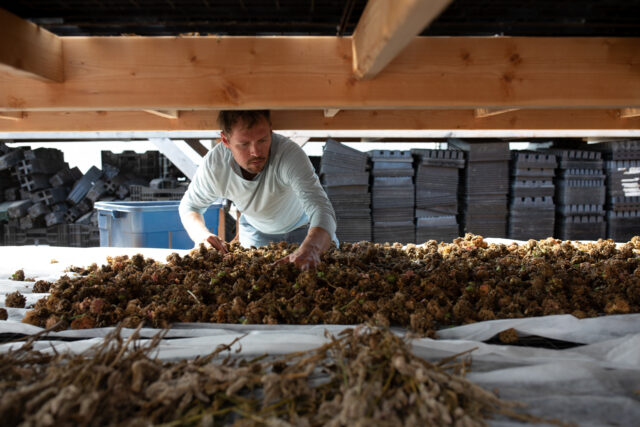 Why do the Floret Original varieties cost more than other seeds?
Why do the Floret Original varieties cost more than other seeds?
A tremendous amount of time and effort has gone into breeding these special new varieties and we’ve done it on our own, right here on our farm. We have spent the last 7 years working to figure out how to breed new varieties, get them to come back true to type, and master the art of seed saving.
This is a very uncommon approach in the flower seed industry. Typically all of the new varieties that are brought to market come from large corporations with breeding facilities located near the equator, where they can grow year-round and have access to very affordable labor. Their seeds are produced on a massive scale and distributed through a global network of dealers, brokers, and seed companies. The end consumer (the farmer or home gardener) is the last person in the chain and is many steps removed from the original source, not knowing how their seeds were produced and who grew them.
What makes this project so special is that we’re doing the work right here on our farm and can share the process and journey with you. We have been working to create what the flower community felt was missing from the marketplace—I like to think of these seeds as “created by the people, for the people.” And now that some of the Floret Original varieties are ready to go into the world, we can deliver them directly to you and bypass all of the middlemen along the way.
When it comes to pricing, we’ve tried to strike a balance between recouping the investment that has gone into this self-funded project, while also making these seeds as affordable as possible for gardeners and farmers. While the higher cost (when compared to standard varieties) might mean that you are only able to get one packet of the seeds you desire versus multiples, I do hope that it doesn’t prevent you from being able to grow them at all.
One of the ways we plan to help offset the higher cost of these seeds is by teaching you how to save your own later this summer. We’ve been busy writing and filming a new Seed-Saving Mini Course that I can’t wait to share more about soon.
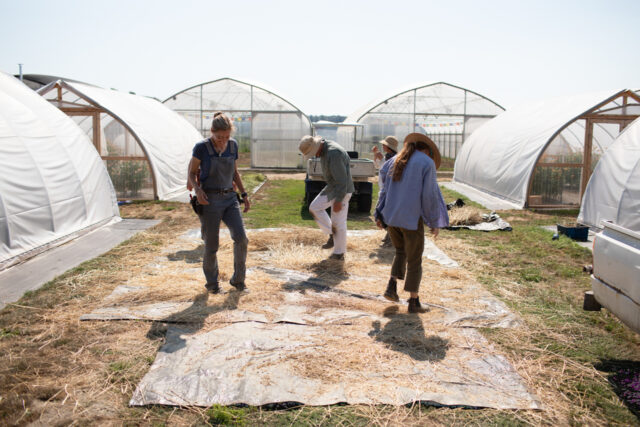 I’m trying to find information about flower seed saving, and I can’t find anything. Can you point me in the right direction?
I’m trying to find information about flower seed saving, and I can’t find anything. Can you point me in the right direction?
I know how frustrating it can be when it comes to trying to find information on flower seed saving and breeding because so few resources currently exist. If you haven’t already read Tiffany Jones’ book, The Zinnia Breeder’s Handbook, or Kristine Albrecht’s Dahlia Breeding for the Farmer-Florist and the Home Gardener both are wonderful resources.
For the last few years, we have been working on documenting the process that we go through to save flower seeds here on the farm. It is an incredibly complex topic and there is so much to learn and know. It’ll be a while before I can share this massive project, but the thought of all of this information becoming publicly available sometime in the future is very exciting!
In the meantime, we’ve been working on a special new Seed-Saving Mini Course that will do a deep dive into saving celosia, dahlia, and zinnia seeds which will be available later this summer. It will cover information about the differences between open-pollinated and hybrid varieties, isolation distances required to ensure that varieties come back true to type, and step-by-step instructions on how to go about harvesting and cleaning seeds on a home scale.
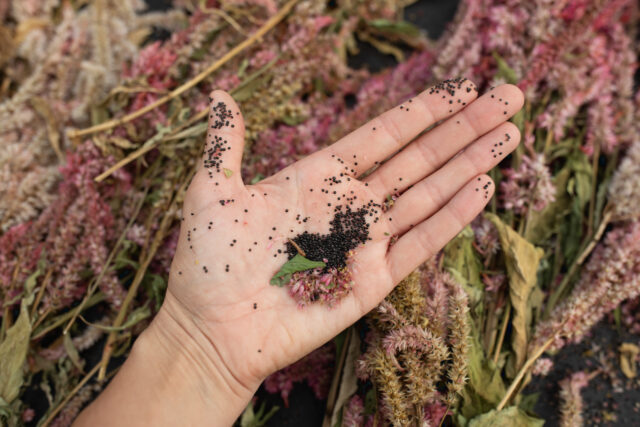 How many seeds come in each packet?
How many seeds come in each packet?
The number of seeds per packet will vary based on the specific variety.
Celosia will have a minimum of 100 seeds per packet, dahlias will have at least 25 seeds, and zinnias will include a minimum of 50, enough to grow a nice big patch of each one.
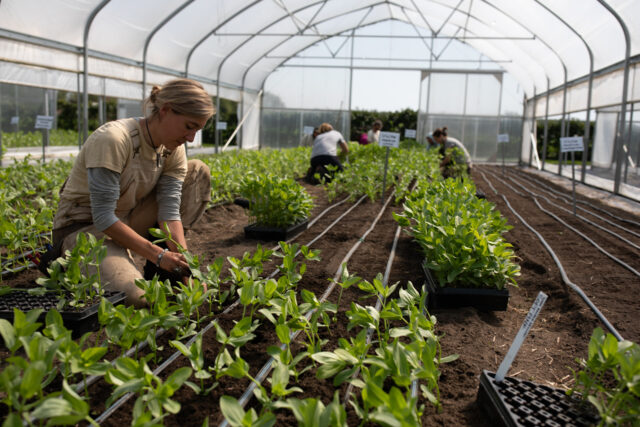 Are your seeds certified organic?
Are your seeds certified organic?
Here on the farm we use organic growing practices but are no longer certified (although we were for more than a decade). All of the seeds that we offer are non-GMO, open-pollinated, and untreated.
If you need a letter stating this for your certifier please email [email protected] and we can send one along.
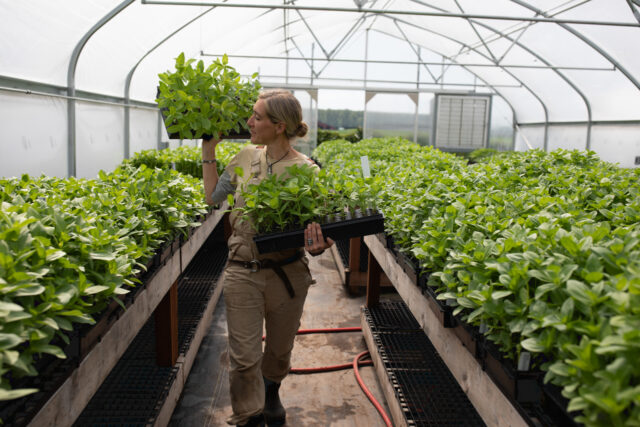 Do you have any tips for growing the new breeding varieties? Each seed is so precious and I want to make sure I do everything right!
Do you have any tips for growing the new breeding varieties? Each seed is so precious and I want to make sure I do everything right!
We’ve created some wonderful resources to help you have success growing the Floret Original varieties this season.
Every seed order leaving the farm will come with a beautiful printed growing guide that includes a step-by-step seed-starting tutorial, flower-growing advice, and detailed growing instructions for celosia, zinnias, and dahlias (from seed). We had so much fun putting together this photo-filled booklet to accompany these special varieties!
The same growing instructions that are in the booklet can also be found in the Resources section of our website. Be sure to check out How to Grow Celosia, How to Grow Zinnias, and How to Grow Dahlias from Seed.
And in mid-February, we’ll be releasing our Winter Mini Course Seed-Starting 101. In this video series, I will show you how to start seeds even if you don’t have a greenhouse, how to care for young seedlings until planting time, and how to avoid common mistakes. The course is free, all you need to do is sign up.
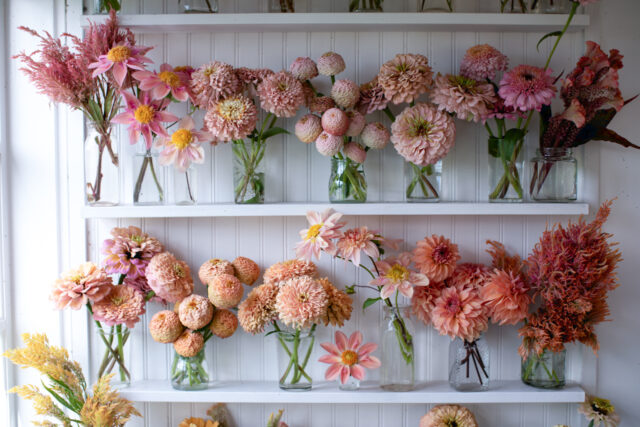 Can I grow celosia, dahlias, and zinnias in pots?
Can I grow celosia, dahlias, and zinnias in pots?
If you have a small space or don’t have any actual ground to grow in, you can plant in pots. Be sure to choose the largest container possible, at least 3 gallons (11 L). It’s important to keep in mind that when you grow any plant in a container, it will require a lot more care than a plant growing directly in the ground. In addition to needing regular deep watering, especially during the height of summer, container-grown plants need to be fertilized monthly with a balanced liquid fertilizer.
If you’re looking for varieties that have a more compact growth habit, some great options are Celosia Coral Reef, Dusty Rose, and Pink Chenille, Dahlia Cancan Girls and Petite Florets, and Zinnia Little Flower Girl and Victorian Wedding.
However, you can experiment with any of the varieties and see which ones do best in containers and raised beds.
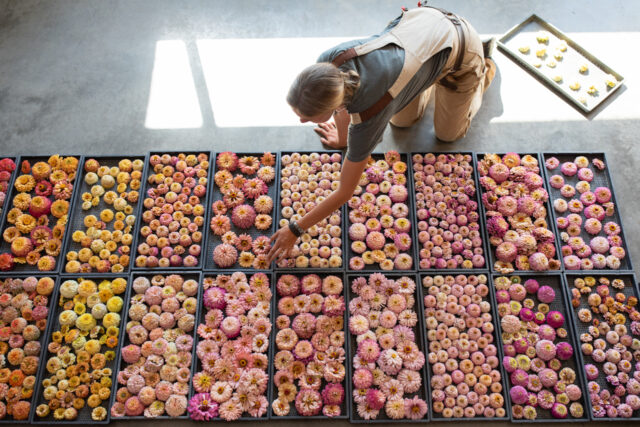 If things sell out, will you be restocking? What does it mean when a variety says “Sold Out” or “Coming Soon”?
If things sell out, will you be restocking? What does it mean when a variety says “Sold Out” or “Coming Soon”?
To know if we will be restocking a variety, there will be a little flag in the upper right-hand corner that either says “Coming Soon” or “Sold Out.” If it says “Coming Soon” the variety will be restocked later this spring.
To be notified when the variety you’re interested in comes back in stock, be sure to use the “Email When Available” feature within the product’s description. When seed is restocked you will receive an email.
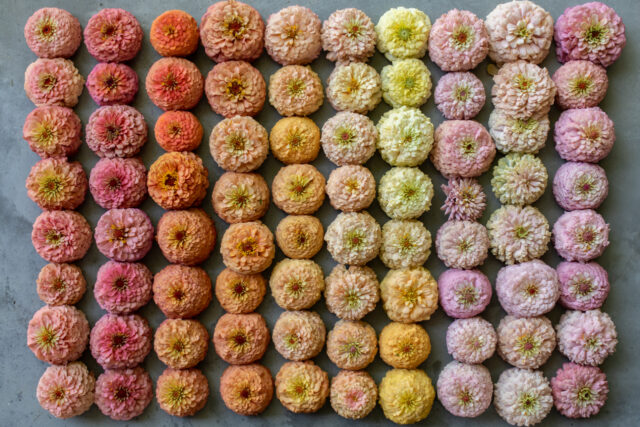 Can you send seed for the Floret Original varieties internationally?
Can you send seed for the Floret Original varieties internationally?
We have been hard at work trying to figure out all of the logistics involved in shipping Floret Original seeds abroad. We spent countless hours doing research, meeting with inspectors, applying for phytosanitary certificates, and sending test shipments to numerous countries around the world.
Despite our best efforts, we still haven’t cracked the code on this process and unfortunately won’t be able to offer this special service at this time. To learn more, please read our International Seed Shipping Update blog post.
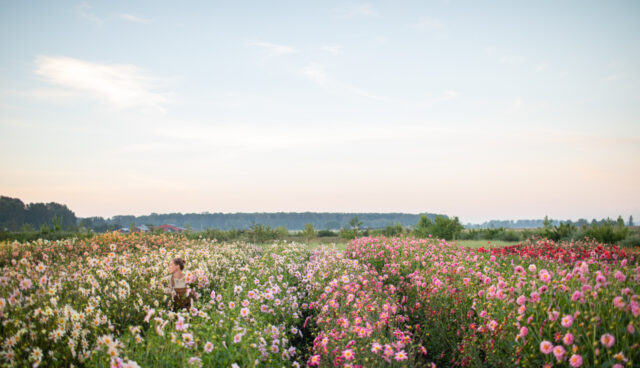 Will items in my cart be held for me?
Will items in my cart be held for me?
This is a tricky one because we have no control over the system that processes orders and inventory once the products are live on the site. Items are removed from inventory as purchases are completed and because of this, the items in your cart will unfortunately not be held. For the best experience, we recommend having your list ready and checking out as soon as possible.
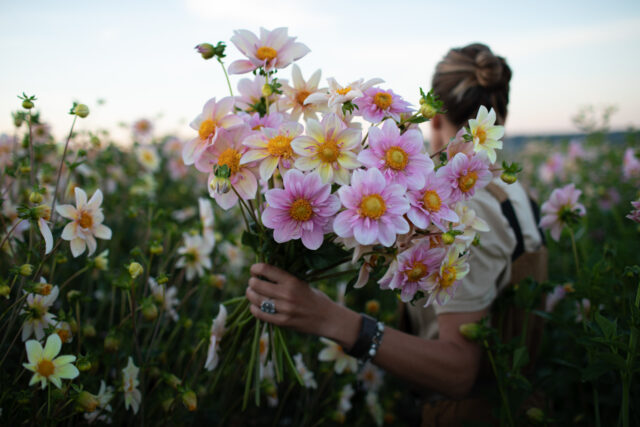 How should I store my seeds if I don’t want to plant them all right away?
How should I store my seeds if I don’t want to plant them all right away?
If stored properly seeds can remain viable for many, many years. Be sure to keep them in a cool, dry place out of direct sunlight. A plastic tub or jar with a lid tucked in the garage or basement works great.
Rodents can be an issue, so be sure that your seeds are stored in a critter-proof container to protect them.
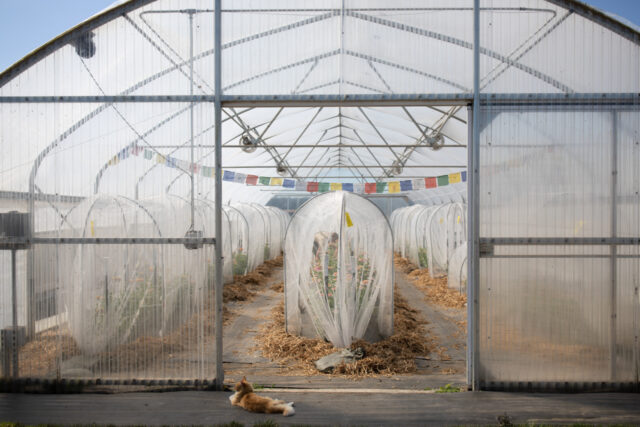 If you have questions that haven’t been answered above, please leave a comment below.
If you have questions that haven’t been answered above, please leave a comment below.
Please note: If your comment doesn’t show up right away, sit tight; we have a spam filter that requires us to approve comments before they are published.
Floret only lists companies and products that we love, use, and recommend. All opinions expressed here are our own and Floret does not offer sponsored content or accept money for editorial reviews. If you buy something using the retail links in this post, Floret may receive a small commission. Thank you for your support!

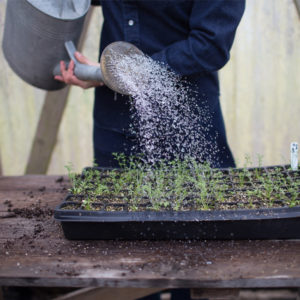
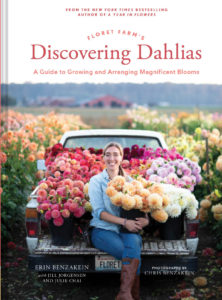
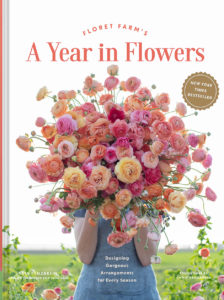
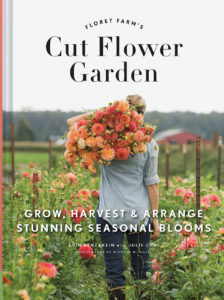

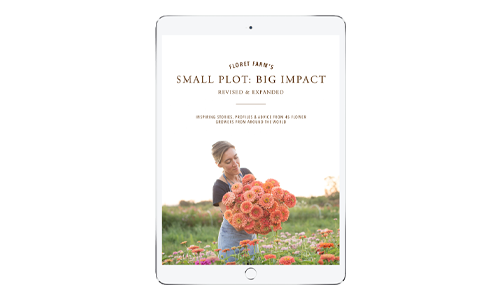
Cheryl Browning on
I have somehow lost my link to the seed saving course… re-registering has not helped. I surely hope you can send me the link again as I had not finished watching the course video. Thanks so much !